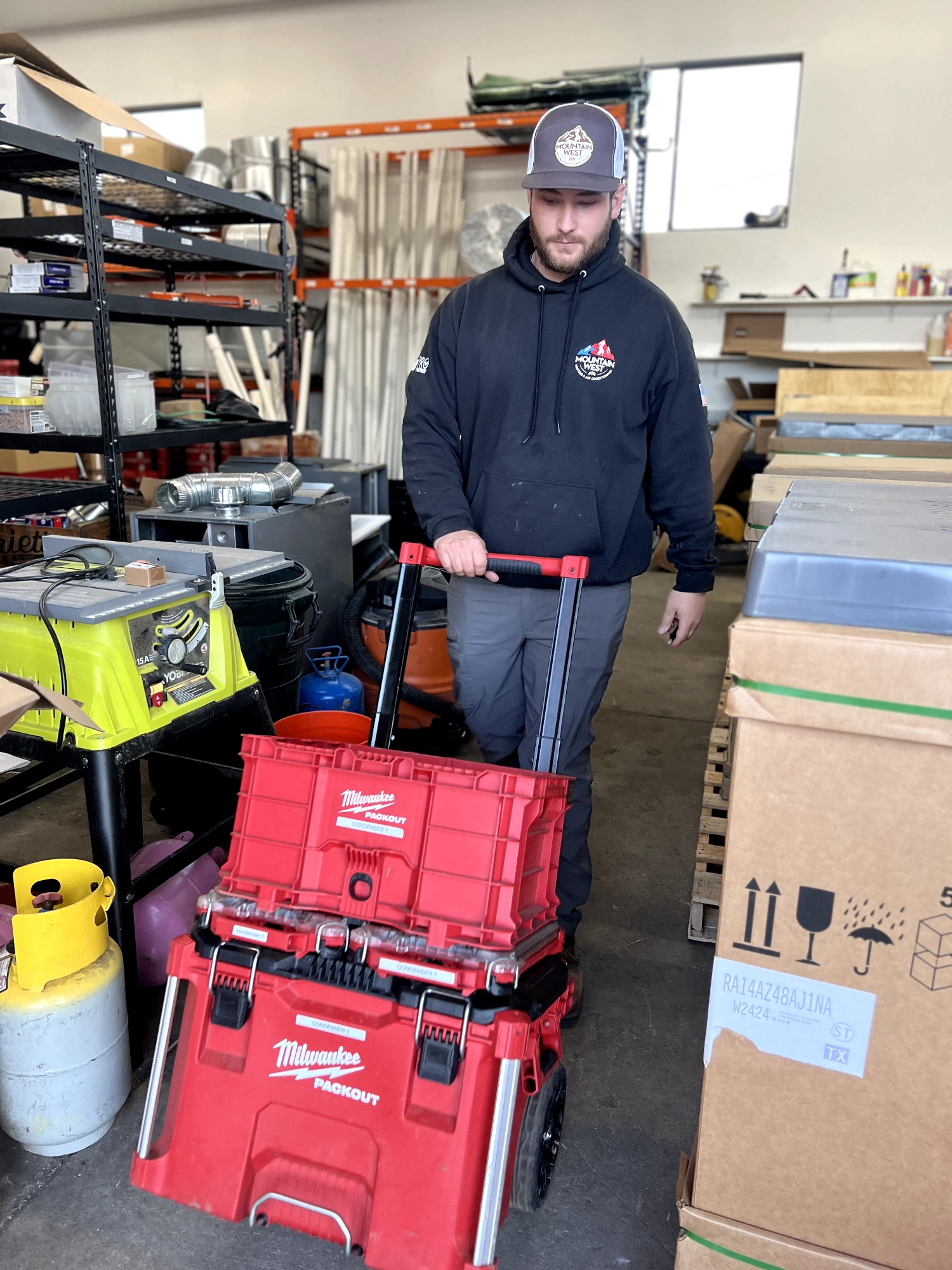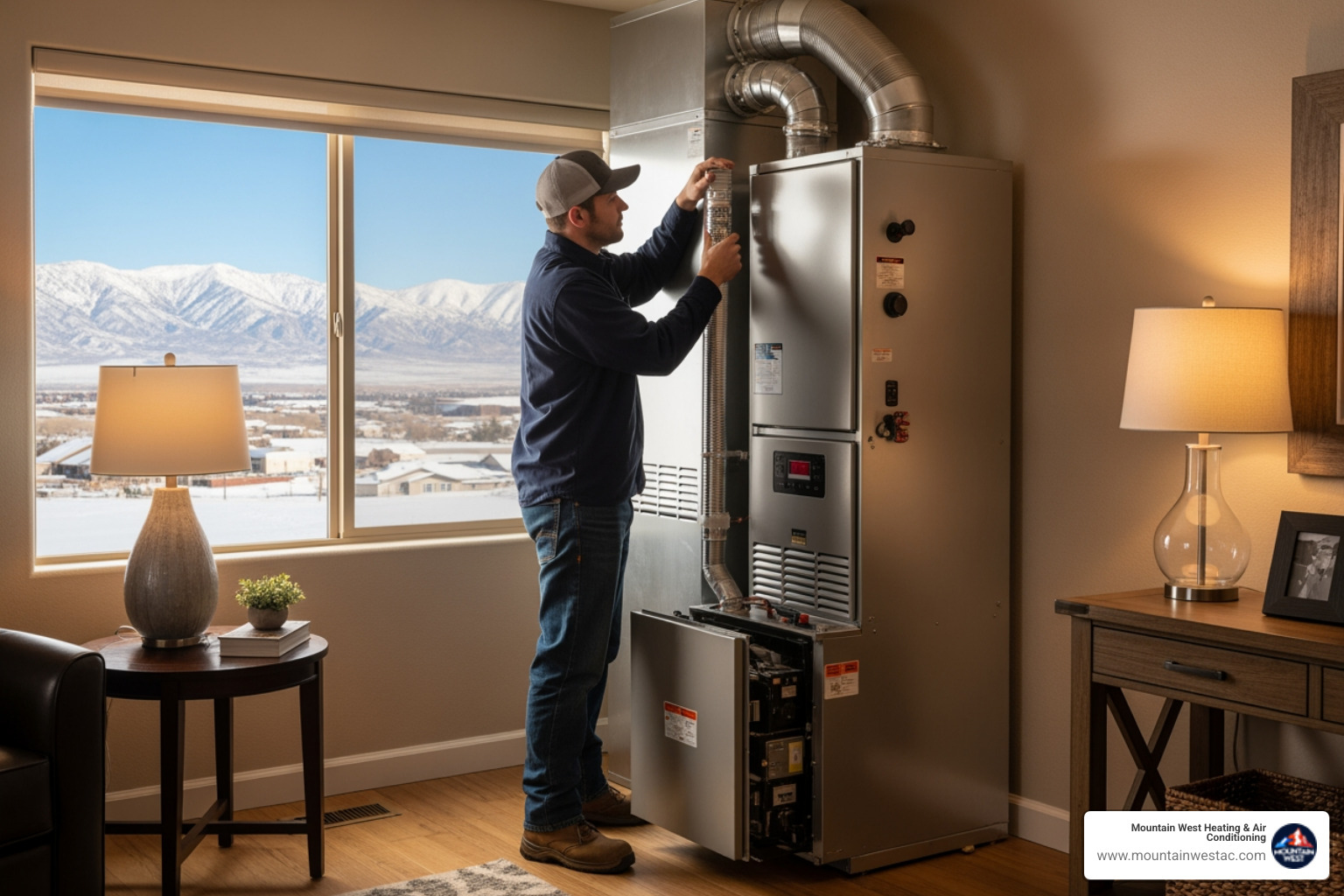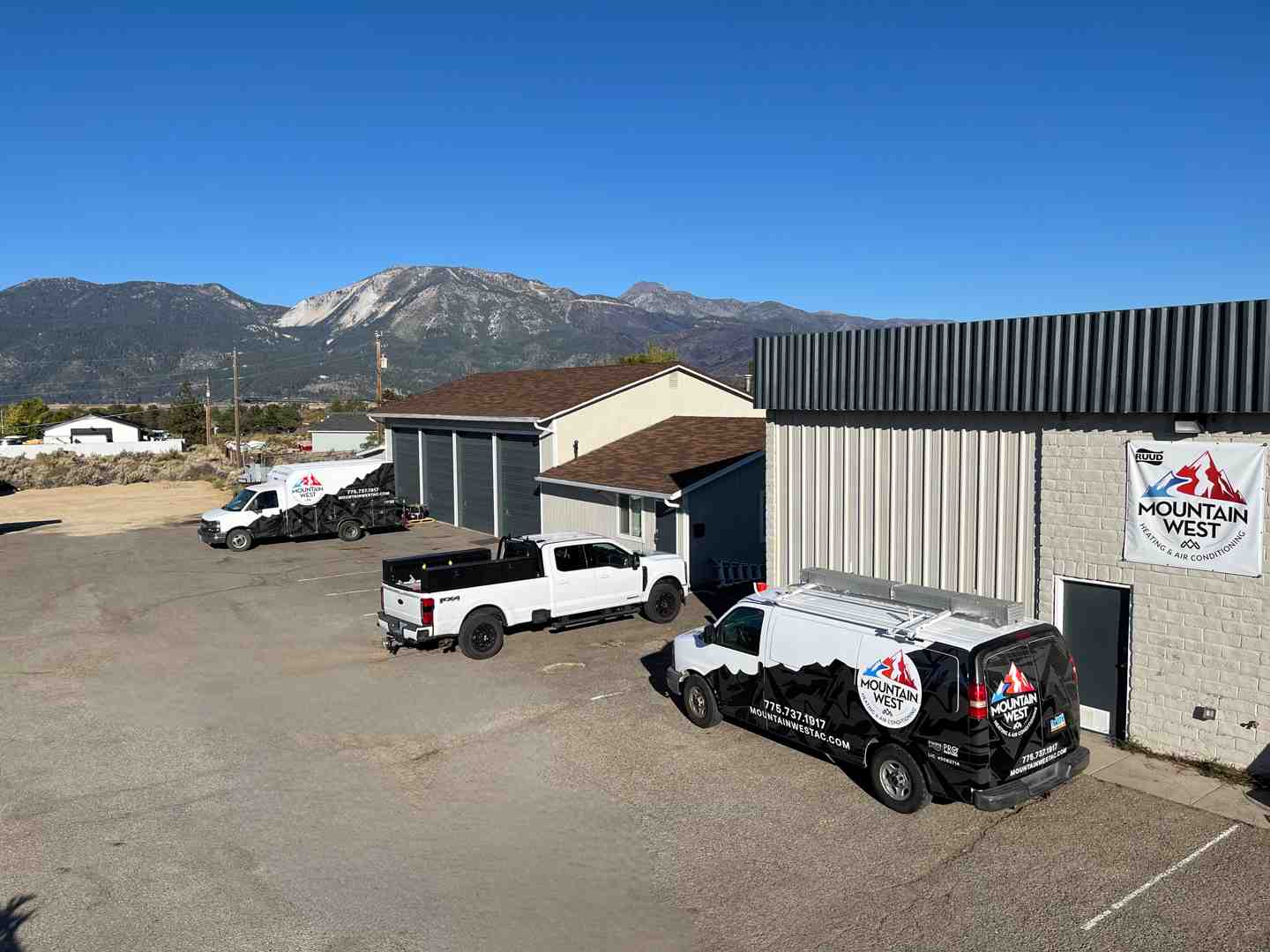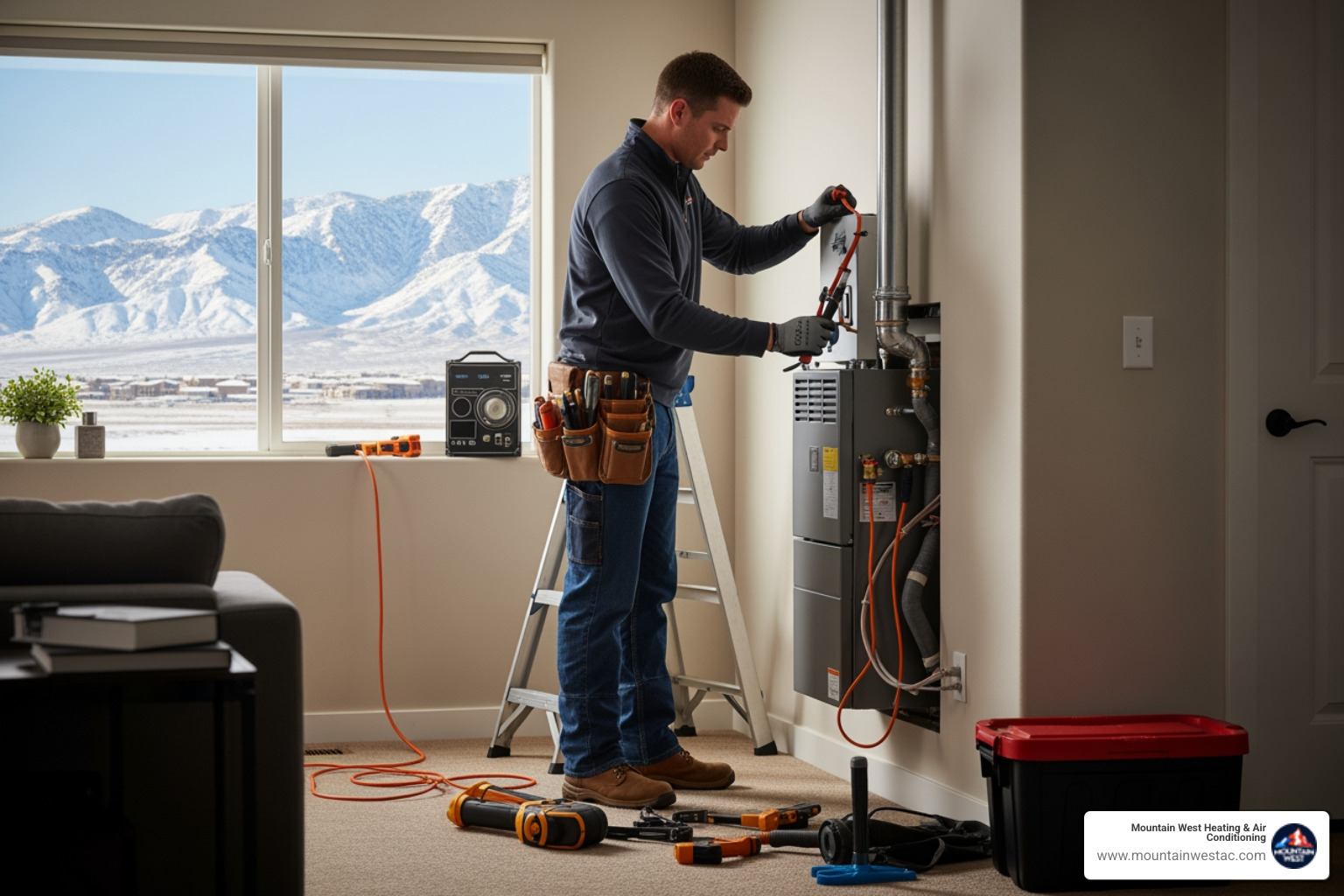When the power goes out, a standby generator should automatically kick in to keep homes and businesses running smoothly. However, like any mechanical system, these backup power units can develop problems over time that prevent them from working when needed most.
Regular maintenance and prompt repairs are essential to ensure standby generators function reliably during power outages. Without proper care, generators may fail to start, run inefficiently, or shut down unexpectedly when people depend on them for critical power needs.
Understanding the warning signs of generator problems and knowing when to call professionals can save property owners from being left in the dark during emergencies. In this article, you’ll learn how standby generator repair keeps your whole-home power system reliable, which issues drive costs, and when to call a professional.
Here’s what you’ll find below:
- Why standby generator repair matters
- Signs your standby generator needs attention
- Professional repair vs. DIY fixes
- Preventing future generator breakdowns
Keep reading! You'll learn everything from identifying common issues to preventing future breakdowns through proper maintenance practices.
Why standby generator repair matters
Proper repair and maintenance of your backup power service ensures reliable operation when you need it most. Ignoring warning signs or delaying repairs can turn minor issues into expensive system failures that leave your home without power during critical outages.
How your standby generator protects your home during outages
A whole home power system serves as the primary defense against power loss. When the electrical grid fails, the generator automatically starts within seconds to restore electricity throughout the house.
These systems protect essential appliances like refrigerators, freezers, and medical equipment. They also maintain heating and cooling systems that prevent pipes from freezing or homes from overheating.
Key protection benefits include:
- Automatic power restoration
- Food preservation
- Medical equipment operation
- Security system functionality
- Communication device charging
Without proper repairs, generators may fail to start or produce insufficient power. This leaves families vulnerable during storms, blackouts, or grid emergencies when backup power is most critical.
Common problems that signal your generator needs repair
Several warning signs indicate when generators require professional attention. Power fluctuations during testing suggest internal electrical issues that need immediate diagnosis.
Generators that struggle to start or fail to reach full wattage have underlying mechanical problems. These issues often worsen over time without proper repair.
Common repair indicators:
- Surging or unstable power output
- Difficulty starting during tests
- Reduced electrical capacity
- Unusual noises during operation
- Visible fuel or oil leaks
Regular testing helps identify these problems before they cause complete system failure. Homeowners should schedule repairs immediately when they notice any performance issues.
Why delaying repairs can lead to costly system damage
Minor generator problems quickly escalate into expensive repairs when left untreated. A loose connection can damage electrical components throughout the entire system.
Worn parts create additional stress on other generator components. This domino effect transforms simple fixes into major overhauls requiring multiple part replacements.
Delayed repairs often result in:
- Complete engine failure
- Damaged transfer switches
- Electrical system burnout
- Voided warranty coverage
Early intervention saves thousands in replacement costs. Professional repairs address root causes before they spread to other system components, protecting the long-term investment in backup power equipment.
According to the U.S. Department of Energy’s Federal Energy Management Program, well-practiced operations and maintenance is one of the most cost-effective ways to ensure reliability, safety, resiliency, and efficiency in critical equipment—including standby generators
Signs your standby generator needs attention
Recognizing early warning signs can prevent costly emergency generator repair situations and ensure reliable backup power when needed most. Key indicators include strange sounds during operation, system error messages, and power delivery problems that signal internal component issues.
Unusual noises or slow startup issues
Normal generator sounds include a steady hum and consistent engine rhythm. Unusual noises signal potential mechanical problems that require immediate attention.
Grinding or scraping sounds often indicate worn bearings or damaged internal components. These noises typically worsen over time and can lead to complete engine failure.
Clicking or knocking sounds may point to fuel injection problems or carbon buildup. The engine struggles to maintain proper combustion when these issues develop.
Slow startup problems happen when the generator takes longer than usual to reach full power. This delay suggests battery weakness, fuel delivery issues, or engine wear.
Common startup warning signs include:
- Engine cranks slowly or hesitates
- Multiple attempts needed to start
- Unusual vibrations during startup
- Inconsistent engine speed initially
Frequent system alerts or error codes
Modern standby generators use digital control panels to monitor system health. Error codes provide specific information about internal problems before they cause complete failures.
Battery-related alerts appear when the generator's starting battery loses charge or connections corrode. Low battery warnings indicate the unit may not start during an outage.
Oil pressure warnings signal potential engine damage from insufficient lubrication. These alerts require immediate shutdown to prevent costly repairs.
Temperature alerts happen when the cooling system fails to regulate engine heat properly. Overheating can warp engine components and require extensive repairs.
Maintenance reminders appear at scheduled intervals based on runtime hours. Ignoring these alerts leads to warranty issues and premature component failure.
Inconsistent power output or fuel problems
Power fluctuations indicate the generator cannot maintain steady electrical output. Voltage variations damage connected appliances and electronics in the home.
Fuel-related issues affect both natural gas and propane units. Dirty fuel filters restrict flow and cause the engine to run poorly or stall unexpectedly.
Common fuel system problems:
- Clogged fuel lines reduce engine performance
- Water contamination in diesel units causes corrosion
- Old gasoline creates varnish buildup in portable units
Electrical output problems show up as dimming lights or appliances running below normal capacity. These issues suggest alternator problems or worn electrical connections that need professional repair.
Professional repair vs. DIY fixes
Standby generator owners face important decisions when problems arise. Simple inspections can help identify basic issues, while professional repairs ensure safety and prevent costly mistakes.
What homeowners can safely inspect on their own
Homeowners can perform basic visual checks without touching electrical components. They should look for obvious signs like loose connections, damaged wires, or corroded parts.
Safe inspection tasks include:
- Checking oil levels and fluid leaks
- Looking at air filter condition
- Inspecting the area around the generator for debris
- Listening for unusual sounds during operation
- Checking fuel lines for visible damage
Battery terminals can be inspected for corrosion or loose connections. The control panel displays error codes that help with generator troubleshooting.
Homeowners should never remove covers or touch internal components. They should not attempt to test electrical connections or fuel system pressure.
Warning signs that need professional attention:
- Strange smells like gas or burning
- Excessive vibration or noise
- Failure to start after multiple attempts
- Inconsistent power output
Why professional technicians ensure safer, longer-lasting results
Licensed technicians have specialized tools and training for generator repair work. They understand electrical systems and safety protocols that prevent accidents.
Professional repairs use genuine parts designed for specific generator models. These parts last longer and maintain warranty coverage.
Technicians test systems properly after repairs. They check voltage output, frequency stability, and automatic transfer switch operation.
Professional advantages include:
- Proper diagnostics - Advanced testing equipment identifies root causes
- Safety compliance - Work meets local electrical codes
- Warranty protection - Professional repairs maintain manufacturer coverage
- Insurance requirements - Many policies require licensed technician work
DIY repairs often create new problems. Incorrect wiring can damage the generator or create fire hazards. Improper fuel system work risks gas leaks.
How expert diagnostics prevent recurring failures
Professional technicians use diagnostic computers and meters to find hidden problems. They test components that appear normal but operate outside safe ranges.
Generator troubleshooting requires understanding how systems work together. A starting problem might come from the battery, control board, or fuel system.
Experts identify patterns in failure modes. They spot worn parts before they break completely.
Advanced diagnostic tools include:
- Digital multimeters for electrical testing
- Fuel pressure gauges
- Engine compression testers
- Computer diagnostic scanners
Professional diagnosis saves money by fixing the actual problem. DIY guesswork leads to replacing good parts while the real issue remains unfixed.
Technicians document repair history and recommend maintenance schedules. This prevents future breakdowns and extends generator life.
Preventing future generator breakdowns
Regular maintenance and proper preparation keep standby generators running when they're needed most. Smart homeowners follow specific maintenance steps, prepare for seasonal weather changes, and invest in professional service plans.
Routine maintenance steps that extend equipment life
Home generator maintenance requires consistent attention to key components. Regular oil changes keep the engine running smoothly and prevent costly damage.
Check oil levels monthly and change oil every 100 hours of operation or twice yearly. Use the manufacturer's recommended oil type for best results.
Air filter maintenance prevents dirt from entering the engine. Clean or replace air filters every six months or after dusty conditions.
Coolant system care stops overheating problems. Check coolant levels monthly and flush the system annually to maintain proper temperatures.
Battery maintenance ensures reliable startup during outages. Clean battery terminals monthly and test battery voltage quarterly.
Spark plug replacement every two years keeps ignition strong. Worn plugs cause hard starting and poor performance.
Visual inspections catch problems early. Look for loose connections, damaged wires, and signs of wear each month.
Seasonal preparation for storm-prone months
Storm seasons demand extra preparation to ensure generators work when power fails. Spring and fall maintenance prevents weather-related breakdowns.
Pre-storm checklist includes fuel system checks and test runs. Verify fuel levels and add stabilizer to prevent fuel degradation during storage.
Clean debris from around the generator unit. Remove leaves, branches, and snow that block air flow to cooling systems.
Test the automatic transfer switch monthly during storm season. This ensures seamless power switching when outages occur.
Check exhaust systems for blockages from nests or debris. Blocked exhausts cause dangerous carbon monoxide buildup and engine damage.
Weather protection includes checking the generator enclosure for damage. Repair loose panels and damaged seals before storms arrive.
Verify generator startup during monthly tests. Run the unit for 30 minutes under load to identify potential problems.
According to a U.S. Department of Energy/Sandia presentation on diesel generator upkeep, performing periodic load-bank testing—e.g., operating at greater than 33% load—helps confirm full rated output and prevents “wet stacking” deposits that can form under lightly loaded operation.
The benefits of scheduled service plans with Mountain West AC
Professional service plans provide expert maintenance that extends generator life and prevents emergency failures. Trained technicians spot problems homeowners often miss.
Comprehensive inspections cover all major systems including fuel, cooling, electrical, and exhaust components. Technicians use specialized tools to test performance accurately.
Priority service during outages means faster repairs when generators fail. Service plan customers receive first response during peak demand periods.
Warranty protection often requires professional maintenance records. Service plans document all maintenance to keep warranties valid.
Cost savings result from preventing major repairs through early problem detection. Regular maintenance costs less than emergency breakdown repairs.
Scheduled visits eliminate the need to remember maintenance tasks. Technicians handle oil changes, filter replacements, and system testing automatically.
Expert technicians identify parts that need replacement before they fail. This prevents unexpected breakdowns during critical power outages.
Financing options for standby generator repair
Get critical repairs done now and spread costs over predictable monthly payments through our partnership with Synchrony Financing (subject to credit approval). You can finance diagnostic fees, parts, and labor for issues like control board failures, transfer switch repairs, battery replacements, fuel system fixes, and scheduled home generator maintenance—so you’re not stuck waiting during outage season.
- Programs available: promotional APR offers (including deferred-interest promos for qualified buyers), fixed-rate plans from 12–84 months, and zero-down options on select programs.
- Why it helps: preserve cash for emergencies, avoid delaying essential backup power service, and keep your whole home power system reliable.
- How to apply (fast):
- Visit our financing page
- Apply via Synchrony’s secure form for an instant decision in most cases
- Choose terms, e-sign, and schedule your repair window
Note: Financing is provided by Synchrony; eligibility, APRs, and terms vary by program and applicant profile. No prepayment penalties on most plans.
- Visit our financing page
Build your standby generator repair estimate online
Get a transparent backup power repair estimate before you book. Our guided form turns your details into a tailored price range and recommended next steps, so you can compare standby generator repair options confidently.
- What you’ll input (5–7 minutes): brand/model, size (kW), fuel type (NG/LP), age, error codes, symptoms (won’t start, surging, won’t transfer), recent service history, and clear photos of the install and control panel.
- What you’ll receive: a ballpark for parts + labor, likely lead times, and scheduling options for a same-day or next-day diagnostic.
- Accuracy checklist: include panel photos, any transfer switch model numbers, and distances (feet) for gas/electrical runs to flag access constraints early.
Start now with our estimate builder
Conclusion
Regular maintenance prevents most standby generator problems. Homeowners should follow scheduled service intervals to keep their units running properly.
Professional repair services handle complex issues that require specialized tools and knowledge. These technicians can diagnose problems quickly and fix them safely.
Homeowners can perform basic maintenance tasks like checking oil levels and cleaning air filters. More advanced repairs should be left to qualified technicians.
Proper maintenance extends generator lifespan significantly. Well-maintained units can operate for thousands of hours without major problems.
Emergency repairs cost more than scheduled maintenance visits. Planning ahead saves money and ensures the generator works when needed most.
Homeowners should keep maintenance records for warranty purposes. These documents help technicians understand the unit's service history.
Warning signs that require immediate attention include unusual noises, oil leaks, and failure to start during tests. Ignoring these problems can lead to complete system failure.
Quality repair services offer warranties on their work. This protection gives homeowners confidence in the repairs performed on their generators.
Standby generators provide peace of mind during power outages. Regular repair and maintenance ensure this backup power source remains reliable when families need it most.
Schedule a same-day diagnostic or request a written standby generator repair estimate with Mountain West AC’s licensed technicians—24/7 emergency support available.









